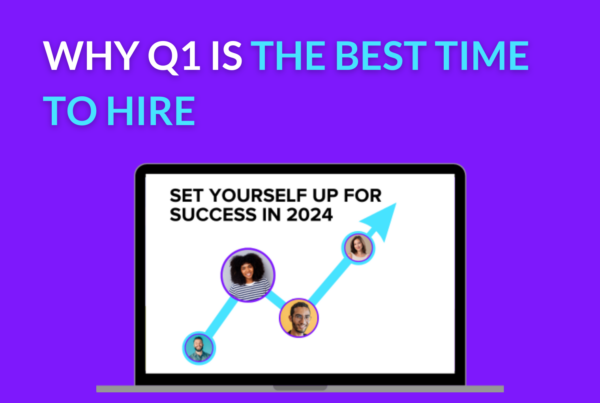
Author: Fern O’Shaughnessy
Associate Director of Storm3 & Editor of the parity perspective.
If you’d like to have a confidential chat with Fern about diversity in the workplace, your hiring needs, or simply want to share your experience as a women in tech, please reach out below.
In my day-to-day role, I often find myself working closely with internal talent teams. While the general expectation of the relationship between internal talent teams and external recruitment is one of opposing sides, some of the closest relationships I’ve formed have been with members of these teams.
They are, in my opinion, the unsung heroes of the tech world. They are building high performing teams, navigating turbulent markets, anticipating hiring needs and managing the expectations of both new employees (and potential employees) and hiring managers.
In the tech workforce, the ratio of men to women is 3:1 and the ratio of men to women in technical roles is 4:1 (Deloitte Consulting); a large portion of women in tech are not in technical roles. Layoffs.fyi founder Roger Lee said that “recruiting and HR are the functions most disproportionately affected [by layoffs] relative to their size”. Likewise, sales is the most common area to be made redundant in – accounting for 20% of the laid-off tech workers. The obvious conclusion to make here: women are more likely to be laid off than men. This is supported by Eightfold‘s research into the topic, where they discovered that, in the tech industry, an individual woman is, on average, 65% more likely to be laid off than her male counterparts.
“In the tech industry, an individual woman is, on average, 65% more likely to be laid off than her male counterparts.”
When it comes to hiring again, the questions often asked (but sadly not always) revolve around diversity. Internal talent are in a unique position of being seen as the gatekeepers of a company whilst simultaneously not (often) being able to make the final decision on who gets hired and who doesn’t. I am yet to meet a member of internal talent who doesn’t care about diversity.
All of this to say; I have chosen to begin this interview series with women from internal talent teams because they are privy to so much of the discussion around diversity within companies.
I am so grateful to the women who gave their time for this series; Thea Aplin (Ribbon Health), Katie Bedney (Gravie), Dana Laufer, SHRM-CP (Syrup Tech), and Bre Barton (Pairwise ), amongst others. The topics and statements that they make are reflective of their general experiences within tech, and not about their current companies.
What do you think the biggest reasons are for there not being many women in tech?
Bre and Thea mention unconscious bias: ‘it’s a deep societal mentality that’s slowly shifting.’ Bre states that ‘Men have always been more free to pursue what they want to do, where as there have been more socially acceptable roles for women, so it’s definitely not an equal field’.
Similarly, Katie is involved with the MN Aspirations in Computing program. They help high school students who identify as women, genderqueer, or non-binary and encourage them to go STEM. She works with students who are ‘already programming in multiple languages, designing robots, captains of sports teams, on the debate team and work part time jobs.’ Each year, these same students ‘express surprise when they are recognized [because] they didn’t think they were “smart enough” or “good enough” to go into technology.’
“Companies are simply not making room for women to be in tech.”
So many of the Tech CEO “success stories” belong to men; Apple, Facebook, Netflix, Google, Microsoft, etc, etc, etc. Even in 2024, when you search ‘Fortune 500’ and see a list of names, the majority of them belong to white men. Dana says that companies are simply ‘not making room for [women] to be in tech’. She has encountered companies being worried about ‘how much time a mom would be able to dedicate to a fast-growing startup’. Another woman I interviewed, discussed a hiring manager who searched a female candidate on Facebook. When he saw she had twins, he rejected her profile: she would not have the time to commit to the business. While Dana is grateful to be in a company who recognizes her as a mom and business leader she does say that it is ‘not an easy thing to find.’
Thea, quite rightly, says that this is shifting; ‘there are so many women innovating in tech’ now, and seeing more women in leadership means that the inspiration and groundwork for more young women, genderqueer and non-binary people to enter tech has been laid.
What bias do you face as a woman when working with male hiring managers and in male-dominated businesses?
A pretty horrifying statistic is that 50% of women in tech said that they have experienced gender discrimination at work (for context, only 19% of men said the same).
All of the women I spoke to have experienced it in some way.
Bre, Katie and Thea have all had men – whether candidates or hiring managers – assume that they are unable to do their role in some capacity. Katie has said she has had to ‘prove to hiring managers [she] understands the technology used by the team’. She is not alone, here; 52% of women in tech have had the same experience. Bre said that she has also had candidates assume this of her, and ‘be utterly condescending’ and explain “what [she] should be doing”.
“There is a misconception that displays of empathy from a woman are often looked at as a lack of assertiveness or strength.”
Thea said that she’s had a few people ‘seem surprised by [her] strong negotiation skills with candidates and even offer to join the call in case she needed the extra “muscle”.’ She has a positive outlook on it, turning it into a ‘superpower… being able to use [her] “classically feminine” qualities to be warm and build genuine trust, while also have the difficult conversations.’ Likewise, Dana said: ‘my kindness is mistaken for weakness… I have noticed that there is a misconception that displays of empathy from a woman are often looked at as a lack of assertiveness or strength.’
Bre mentioned an old (and, I’m sure to a lot of people, familiar) stereotype that she has faced; people assuming she is ‘going to be emotional all the time or not choosing to tell [her] something (or rephrasing how they say it) to try not to make [her] upset.’
Have you experienced a hiring manager with unconscious bias?
Again, this is a universal experience for internal talent. Every single person I interviewed agreed with the notion that ‘anyone who says they don’t have unconscious bias isn’t being honest’ (Bre), and that it is ‘crucial that we challenge ourselves and others to constant reflect and be proactive about evolving throughout our careers’ (Thea). Unconscious bias typically presents itself as ‘like hires like’ (Dana), with hiring managers favoring candidates who went to the same university, studied the same subjects, come from a similar background or… look the same.
Katie described one such scenario at a previous company: “The VP of Marketing told me to extend an offer $20,000 less than we could pay and said if the candidate did not “negotiate like a man” on the offer, she did not deserve to make more money.
I told him that was not the company philosophy and that I had explained that to him during the interview process when we hired him earlier that year. I pulled up my notes where he said he was a firm believer in paying fairly and equitably. I told him what he just said went against the company philosophy and if that is how he truly felt, he was at the wrong company.
A week after she started, she came by my office to thank me for what I had done for her. The VP told her what he told me to do and apologized to her for even thinking like that!”
If the candidate did not “negotiate like a man” on the offer, she did not deserve to make more money.
Thea and Dana said that they have noticed similar trends in why women may be rejected for a role. They cited communication, culture fit, being ‘less confident’, ‘not proactive enough’ or simply not being ‘”hungry”‘ as reasons women are typically rejected. All of which, as Thea says, are ‘incredibly difficult to truly measure’!
Women also display unconscious bias. Bre said that women frequently ‘show biases in favor of women and minority groups.’ While not being ‘against men,’ but because of their own experiences, they ‘are so conscious of the challenges of women in science,’ that they try to give women a leg up.
Katie said that sometimes it is actually harder to get women to recognize their own biases.
How have you managed unconscious bias?
All four women agreed that managing unconscious bias, largely, comes down to working with and educating hiring managers. Dana and Thea suggest building trust with hiring managers and working with them closely to ‘consider a variety of different skill sets and previous experiences’ that could frame the ‘ideal profile’.
Often, ‘building out a strong functional competency framework and interview kit’ is also beneficial, as it ensures that candidates are ‘fairly assessed across the board’ (Thea). Similarly, Bre will ensure that the interview panel is made up of a diverse group to avoid ‘falling into a bias hire.’
If these suggestions still fail, Katie suggests asking for assistance. She ran through a time she enlisted the help of a CTO who had not attended a Big Ten University to combat a VP of Engineer’s bias against those universities; the CTO ‘told the VP he heard the VP didn’t consider him qualified for his engineering position.’ The CTO explained that cost was a factor in him choosing a state university, and that he ‘expected his managers to hire the best talent by recognizing their biases’. They hired a talented engineer who did not attend a Big 10 University.
Is it “worth it” to push back against unconscious bias? you face so many challenges in a day, especially in a startup, is this one you will see the results from?
From all four, this was a resounding yes. Whether they get the results they want, it was unanimous that it is always worth it to push back.
Is there anything that you’ve done in particular that has worked in encouraging hiring managers to hire diverse candidates?
Diverse workplaces are proven to be more profitable. Forbes have an article (see the sources at the bottom!) detailing that you can increase EBITDA by 33% by hiring diversely rather than for a cultural fit (which, as they point out, “only ever amounts to uniformity”).
Thea and Dana utilise statistics like this, and their own internal data, to influence hiring managers and executives into hiring more diversely. Katie also hosts discussions on unconscious bias. It seems the key here is education!
It is natural to experience at least some pushback in conversations such as this. For startups in particular, ‘it can feel daunting to add this as a consideration when running a process already strapped for resources and time’ – and even when HM do prioritise D,E&I, ‘the worry becomes how long it will take to fill priority open roles’ (Thea).
“The key here is education!”
Bre acknowledged as well that a lot of people do not want to consider that they are part of the problem, choosing to believe that they ‘already do a great job of being diverse’. The issue there is ‘getting people to acknowledge that there’s always room for improvement’.
What is the problem you are most passionate about solving?
Thea: Building more self-sustaining teams. That may sound vague, but talent within a company is such a delicate ecosystem. Because of this, I’m always trying to hire individuals who add key structural support to the business and could be future leaders (if not being hired into leadership initially.)
Bre: The idea that so many people have that they feel like they can’t apply for roles unless they meet every single bullet point – if you meet every bullet point you’re over qualified for the role. This concept seems to be most prevalent among women, and we need to help each other see our worth and not be afraid to reach for more.
Dana: Working moms managing their mental health and time! It is something I feel very passionate about.
Finally, do you have any advice for navigating internal talent in tech?
Bre: I didn’t start out in recruitment, but if I could give my younger self any advice it would be that you don’t have to be perfect to have worth. You are worthy just as you are, and the right people will forgive any shortcomings, if they don’t then you’re not in the right place – get out! And: Get an Internship!
Thea: It never hurts to ask! There were so many rooms I was eager to be in and opportunities I wanted that I’m positive I could’ve accessed sooner had I been confident enough to ask. When you’re young and eager, people typically want to help you learn! It’s the small breakthroughs that really push your career forward.
Katie: I am passionate about getting more girls and young women interested in technology. Besides being a founding member of the MN Aspirations in Computing program, I have been active with multiple organizations focused on inspiring elementary and high school girls to learn technology and grow their skills. I recruit friends and coworkers to volunteer for camps, job shadows, internships, etc.
Dana: Trust your gut and fight the good fight!
sources & further reading
I read a lot around “women in tech” while researching for this. These women – and the many more that I spoke to – all have experiences with things that I had previously only looked at as a statistic. While the articles below share the statistics, I think it is the individual stories that make up each statistic that are more valuable.
Tech workers most likely to be laid off






